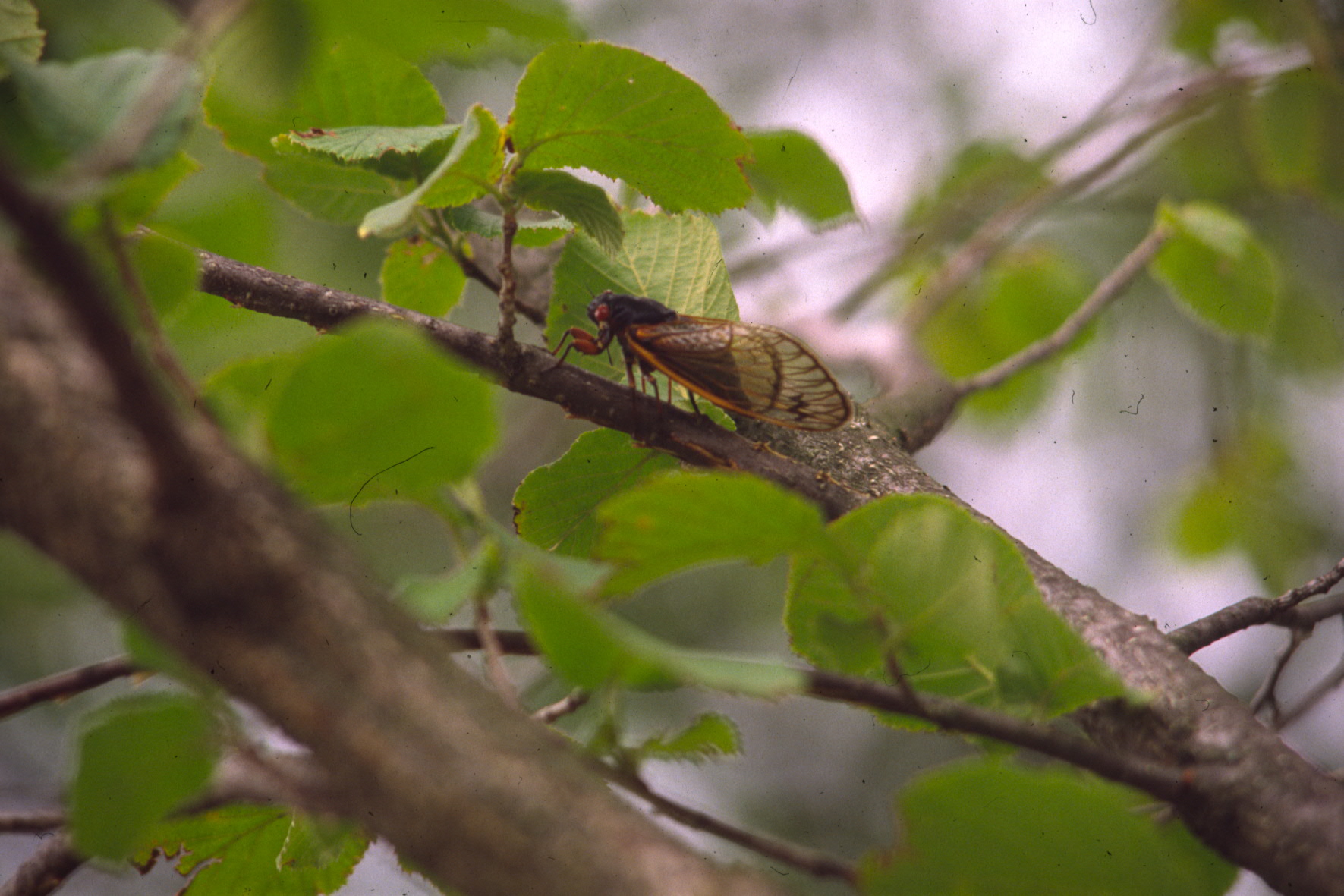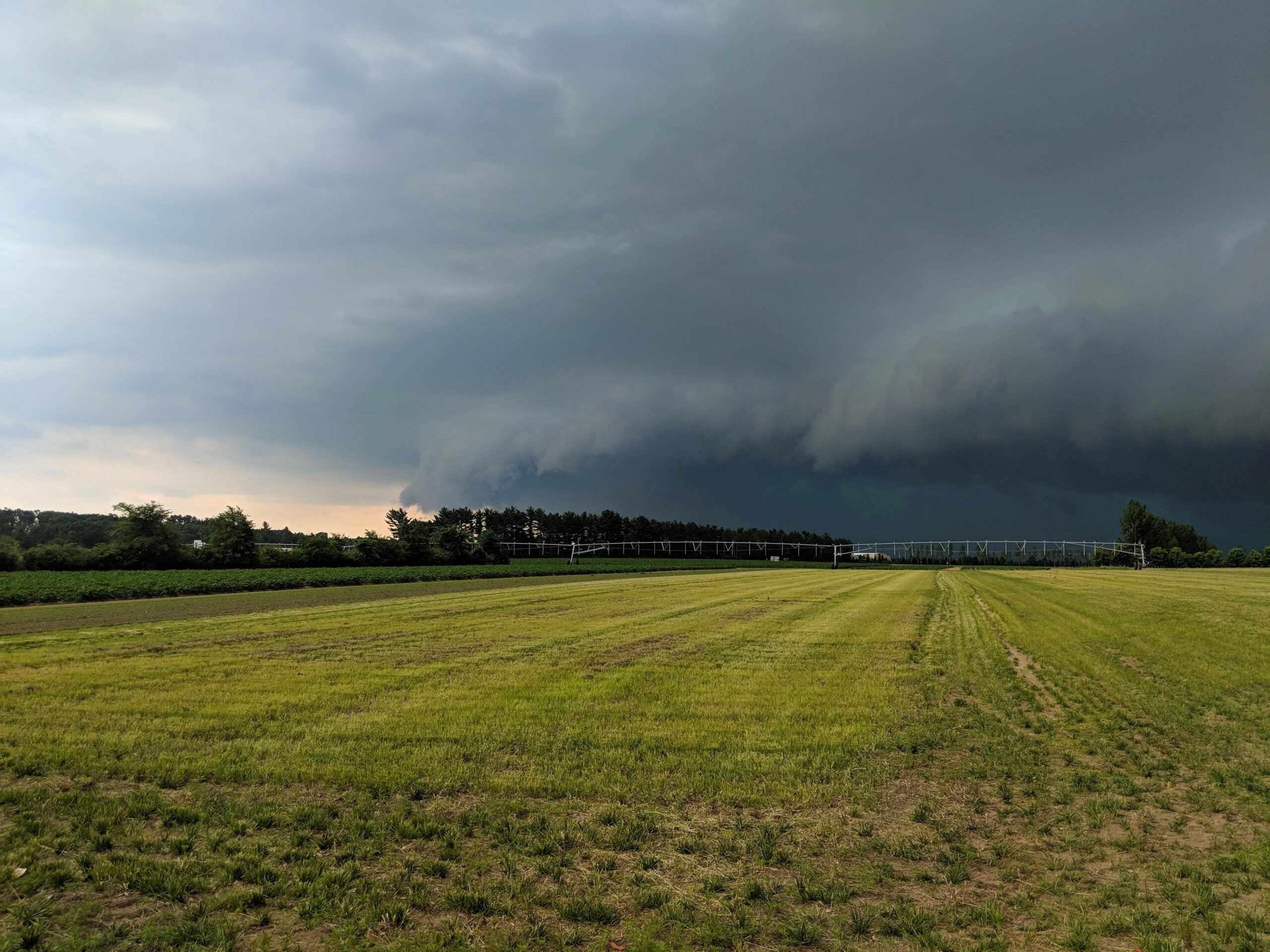The periodic emergence of cicadas like the one this spring give scientists the opportunity to track the unusual life cycle of the insects over decades.
A researcher at the University of Wisconsin-Madison is using the record of previous cicada events as a way to understand the long-term impact of pesticides on human health.
Female cicadas cause damage to trees and some plants by cutting slits into their branches to lay their eggs. Pesticides are not an effective way to control the insects, with environmental officials instead recommending tree owners protect branches by covering them with netting.
News with a little more humanity
WPR’s “Wisconsin Today” newsletter keeps you connected to the state you love without feeling overwhelmed. No paywall. No agenda. No corporate filter.
But Jason Fletcher, professor of public affairs at the University of Wisconsin-Madison, said during the early 20th century, producers of tree crops like apples commonly used the chemicals when preparing for an emergence.
“Because cicadas are known, when they’re coming and where they’re going to be in general terms, certainly in the past, farmers tried to protect their crops by dousing everything with pesticide,” he said.
Fletcher and his colleague Hamid Noghanibehambari from Austin Peay State University in Tennessee realized the cicada events of the past could be used as a way to measure the long-term effects of early exposure to pesticides.
Previous studies have shown that chemicals negatively affect human health. But Fletcher said the research has not looked at what these exposures mean over the course of a person’s life.
Using Census data from 1940 and previous decades, they identified people who were born in counties with large amounts of apple production during years that had a cicada emergence.
“If I was born in a county with cicadas that was a heavy apple producer back in 1920 or 1925, then we presume or infer that that was a place that would have had a lot of pesticide unleashed in that particular year in that particular place,” Fletcher said.
The study found that men who were born in apple-producing counties around the time of a cicada emergence had lives that were roughly 2 months shorter than men born in the same county in a different year.
Fletcher said the Census records also allowed them to identify men whose father worked in farming, implying a higher exposure to pesticides. That population had lives that were about 10 months shorter than expected.
“The interesting thing … is how long of an effect this is,” he said. “This is something that happens as you’re born, and we’re tracing this out to having much shorter lives when you’re in your 70s. So it’s people who have survived a long time, and then at the end of life have this slightly shorter life.”
Regulations around pesticides and other agrichemicals are much stricter today than a century ago. But Fletcher said the understanding that early exposures can impact lifelong health could be applied to modern day threats, like pollution from PFAS or fossil fuels.
“One hundred years ago, exposure to this amount of air pollution from cars and from driving on the highway wouldn’t be (seen),” he said. “So we don’t know yet how our current exposure and our children’s exposure to something like air pollution is going to play out in the next 60, 80, 90 years.”
Wisconsin Public Radio, © Copyright 2025, Board of Regents of the University of Wisconsin System and Wisconsin Educational Communications Board.







